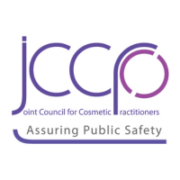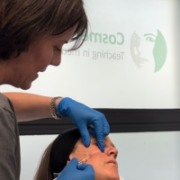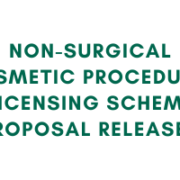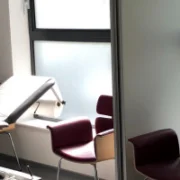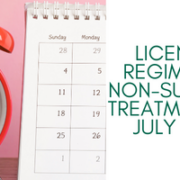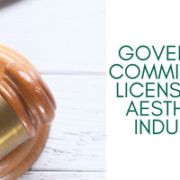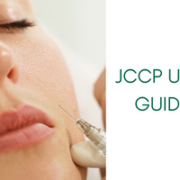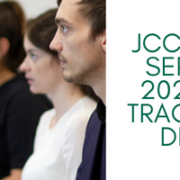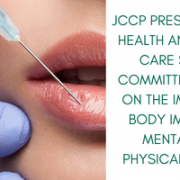On the 2nd of September 2023, the Government released an open consultation on the licensing scheme of non-surgical cosmetic procedures in England. This a great step in bringing regulation into the aesthetics industry.
The details of the government’s plan for bringing regulation into the aesthetics industry were published on the Department of Health & Social Care (DHSC) website.
One of the main concerns for the Government is ensuring public safety and public protection. Currently, there are no regulations and restrictions on who can perform non-surgical cosmetic procedures. This creates a risk to the safety of the patient. The government recognises this and will be implementing the following licensing scheme in order to minimise the potential dangers to the public.
The licensing scheme will ensure that those who offer non-surgical cosmetic procedures:
- Are suitably knowledgeable, trained and qualified.
- Hold appropriate indemnity cover.
- Operate from premises which meet the necessary standards of hygiene, infection control and cleanliness.
“The purpose of the scheme is to ensure that consumers who choose to undergo a non-surgical cosmetic procedure can be confident that the treatment they receive is safe and of a high standard.”
“Any licensing scheme for non-surgical cosmetic procedures must strike a balance between protecting the public and building confidence in the safety of the aesthetic industry while respecting consumer choice and encouraging innovation.”
The Government’s intention with the licensing scheme is to:
- Identify the procedures that present a risk to the public.
- Consist of 2 interlinked components: a practitioner licence and a premises licence.
- Be administered and enforced by local authorities, who will work with a range of partners such as environmental health officers, trading standards officers and the Health and Safety Executive.
- Make it an offence for an individual to carry out non-surgical cosmetic procedures without a licence.
- Introduce a minimum age of 18 for those people seeking to receive the procedures licensed under the scheme.
- Require those people who offer procedures to:
- Be suitably trained and qualified.
- Hold appropriate indemnity cover.
- Operate from premises which meet the scheme’s standards of hygiene, infection control and cleanliness.
In this consultation, the Government is focusing on:
- The procedures in scope.
- Restrictions on which practitioners should be permitted to perform procedures.
- Age restrictions for those undergoing such procedures.
Restriction of cosmetic procedures
There are non-surgical cosmetic procedures that are extremely complex and invasive who should only be carried out by medical professionals with the required training. Putting patient safety first, the government are looking at a way to protect individuals who choose to undergo high-risk non-surgical cosmetic procedures by restricting the types of treatment including:
- Procedures aimed at augmenting the genitals, typically using autologous fat or dermal fillers.
- Any injectable procedures – such as dermal fillers – undertaken to intimate areas of the body, such as the rectum, genitalia or breasts.
- The combination of ultrasound and large bore cannula for the purposes of liposuction.
These procedures would not be included within the local authority licensing scheme.
Care Quality Commission (CQC)
Any providers of a regulated activity must meet CQC’s fundamental standards of safety and quality, or risk enforcement action. This ensures the safety of the patient. Aesthetic practitioners who are suitable to undertake a restricted high-risk procedure would have to register with CQC.
Risk Categories
There are always risks associated with aesthetic treatments. Certain non-surgical procedures are more complex than other and come with a higher level of risk to the patient. The government has proposed that they will be categorising non-surgical procedures depending on the risks (including level of complexity and degree of invasiveness) and potential complications associated. The categories are as follows:
“Green: Procedures with the lowest risk of complications. All practitioners are eligible to perform licensed procedures where they meet agreed standards.
Amber: Procedures with medium risk of complications. Non-healthcare professionals must be licensed and have relevant oversight by a named regulated healthcare professional (who has gained an accredited qualification to prescribe, administer, and supervise aesthetic procedures).
Red: Procedures with the highest risk of complications. In line with the proposal on CQC regulation of cosmetic procedures outlined above, bringing specified high-risk procedures into CQC regulation, so that they fall outside of the scope of the licensing scheme. We are also proposing to restrict these procedures to qualified and regulated healthcare professionals only.”
Mr Adrian Richards comments on the Licensing Scheme Proposal Released
Our Clinical Director & Consultant Plastic Surgeon Mr Adrian Richards comments on the licensing of non-surgical cosmetic procedures in England:
“I welcome the recently launched government consultation process on cosmetic procedures, in particular, the patients who have the treatments get a full say and their views aired.
Our priority as always should be the patients, and this is why I feel is very important that their views are heard and actioned. I also welcome proposals to restrict who can perform some high-risk procedures and age limits for those undergoing cosmetic procedures.
The aesthetics industry is young, and regulation is well overdue in my opinion to ensure the safety of the patients undergoing cosmetic treatments.
The new licensing scheme will provide reassurance to patients that wherever they go for their non-surgical cosmetic procedures, they will receive high standards of care from registered, licensed aesthetic practitioners.
The proposed Government Licensing System will help patients choose appropriately trained and qualified aesthetic practitioners, ensure they have necessary insurance coverage and are operating from a premise that is safe and hygienic.
The proposed new scheme which will be operated by local authorities will ensure that the practitioner needs to be licensed to perform specific procedures as will the premise from which they operate. This is a great advancement for the aesthetics industry in the UK and the government should be applauded for this initiative.
I would like to say many thanks to the JCCP, and in particular Professor David Sines, CBE, and his team for working so hard and diligently on the proposed licensing scheme which will be a benefit in my opinion for all practitioners and patients in England giving the industry regulation which it deserves in order to ensure patient safety.”
Accredited registers for non-surgical cosmetic procedures
“The Professional Standards Authority’s (PSA) Accredited Registers Programme provides assurance to the public when choosing health and care services, by independently assessing organisations which register practitioners who are not regulated by law.”
“Joint Council for Cosmetic Practitioners (JCCP) operates a voluntary register open to all practitioners working in the fields of cosmetic treatments. Practitioners must demonstrate evidence of competence and proficiency to join the JCCP register in accordance with its prescribed standards. JCCP also operates a non-PSA accredited register for Approved Education and Training Providers and Qualifications.”
At Cosmetic Courses, we provide you with a route to join the Joint Council for Cosmetic Practitioners (JCCP) register through our JCCP Fast Track Assessment. Suitable for experienced injectors, you will need to demonstrate your knowledge and experience within aesthetic medicine. The JCCP Fast Track Assessment can be completed in a day (3 hours theory & 3 hours practical) or spread according to your schedule. You can find out more information and book the JCCP Fast Track by clicking here.
Next Steps
The Government will be working with expert groups on the elements that will underpin the licensing scheme, including education and training standards, insurance, infection control and hygiene qualifications, and a fees model. Once the regulations have been finalised, there will be a transitionary period before the licensing scheme is in full operation across England.
What does this mean for you?
Regulation is coming into the industry. How can you ensure that you are in the best position? We have two options for medical professionals to ensure that they can operate once the licensing scheme is up and running.
Level 7 Diploma
The Level 7 Diploma is a JCCP approved and VTCT certified clinical aesthetics diploma in injectable treatments for medical professionals considering a career in aesthetic medicine as well as those already practicing but looking to obtain formal recognition for their knowledge and skills.
This Aesthetics Qualification is suitable for both new and experienced aesthetic practitioners. We have two options available for the Level 7, the full qualification and the Fast Track: Recognition of Prior Learning. Find out more about the Level 7 Qualification by clicking here.
If you are looking for the latest information on the government updates and regulation coming to the aesthetics industry, you can find the latest updates in the Government Guidelines Knowledge Hub.
